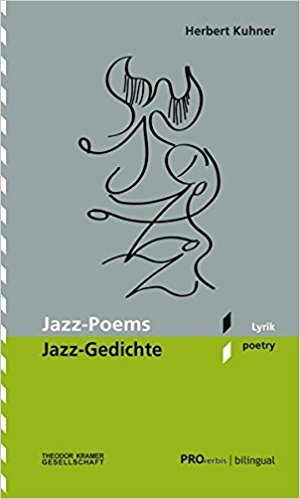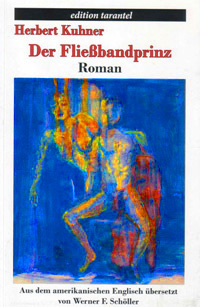Good-Bad Guys and Gals
Red and Brown Wool
If you have pulled the red wool over your eyes concerning the murder of millions, the fellow revolutionaries, the general staff and the signing of the Non-Aggression Pact, and the invasion of Poland from the east, then how can you blame those “good” Germans who pulled the brown wool over their eyes?
Icons of Gertrude Stein
Gertrude Stein’s apartment in Paris was a literary and artistic center in Paris for expatriates, as well as home-grown artists. She opened her doors to Joyce, Hemingway, Fitzgerald and to Picasso and Matisse, among others. But she was not only a hostess, she was an avant-garde “prosetess,” who used tautology and echolalia extensively in her work.
Stein was very eclectic in her tastes. Early on, she admired Otto Weininger, a Viennese Jew who did not speak or write well of either women or Jews.

Pablo Picassos painting of Gertrude Stein
Another man she admired was Adolf Hitler: Here’s Stein on the object of her admiration: “I say that Hitler ought to have the peace prize because he is removing all elements of contest and struggle from Germany. By driving out the Jews and the democratic and Left elements, he is driving out everything that conduces to activity. That means peace….By suppressing Jews…he was ending struggle in Germany”[1]
She also admired Hitler’s factotum in France, Marshal Petain, who she compared to George Washington. She translated some of the marshal’s speeches into English and submitted a selection to the Atlantic Monthly. Needless to say, she got a rejection slip from that journal.
However, strangely enough, Stein was proud to be a Jew and claimed: “All men of genius had Jewish blood.” [2] She spent the war years in her Paris apartment. Apparently the occupying Nazis and the French collaborators were appreciative of her efforts on their behalf.
Stein conveniently died in 1946. Thus she didn’t live long enough to be personally confronted with her quotes concerning Hitler and his entourage.
If you can’t figure Stein out, she put things this way: “I tell you boys there aint any answer, just you believe me, there aint any answer, there aint going to be any answer, there never has been any answer, that’s the answer. [3]
Let me add: No fool can be as much of a fool as the wise man (or woman) off keel.
Knut Hamsun et al Go Against the Grain
Knut Hamsun was an admirer of Adolf Hitler. He visited the Führer in 1943 and presented his Nobel Prize medal to Adolf’s right-hand man Joseph Goebbels.
After Adolf Hitler committed suicide on April 30, 1945, Knut Hamsun published an obituary in a collaborationist Norwegian paper. In it he wrote: “I am not worthy to speak his name out loud.” At the time there was no independent Norwegian media. What’s more, Hamsun sent a telegram to the Reich Chancellery in Berlin expressing his condolences: “He was a warrior, a warrior for mankind, and a prophet of the gospel of justice for all nations.”

Knut Hamsun
It is doubtful whether it arrived before Berlin fell into Russian hands.
The stylistic literary innovator Louis-Ferdinand Céline was also a collaborator, in addition to being the author of anti-Semitic tracts.
Another fan of the Führer was Gertrude Stein, who couldn‘t stem her enthusiasm, no matter what. Conversely Lillian Hellman approved of Stalin’s purges and the Hitler-Stalin Pact. And then there’s Ezra Pound, who was enamored of Benito Mussolini and went on the Italian air for the “Cause.”
Not to be forgotten is Peter Handke, an admirer of Slobodan Milošević and fellow-poet Radovan Karadžić. Handke paid his last respects to the former and visited the latter in 1996,while he was on the lam.
Ratko Mladić and Radovan Karadžić did a splendid job of mass murder. Slaughtering 8,000 men and boys is no simple matter, but they and their henchmen did it without balking or flinching in July of 1995. An estimated 20,000 Muslim women were raped by Serbs during the conflict. Among these women were the mothers, sisters and daughters of those slaughtered at Srebrenica.
Here’s Laureate Handke concerning mass–murder and rape in Srebrenica: „You can shove your concern up your ass!“ [5]
And more specifically: “Let me add, these so-called ‚Mothers of Srebrenica‘: I don’t believe a word they say, I don’t believe their grief. If I were a mother, I would grieved alone. There were the mothers of Buenos Aires, quite right, they united and asked the Military Dictators what happened to their children. But this cheap imitation is hideous. There are mothers from Buenos Aires, and that’s it! “ [6]
Laureate Elfriede Jelinek, concerning the general population: “I believe that man is evil; that is my gospel, and I believe that he must be controlled.” [7]
I don’t dispute the first part of the comparison, but I do dispute the second part. I’m still turning the pages of history, trying to find a benevolent dictator.
– H.K.
Writers do not always have the vision we’d like them to have. Please don’t ask me to provide the key! I’m still trying to figure it out.
* * * * *
[1] New York Times Magazine, May 6, 1934
[2] Linda Wagner-Martin, Journal of Historical Review
[3] Brewsie and Willie, 1946
[4]Geoffrey Macnab, The Guardian, March 7, 2002
[5].der spiegel 43/2019
[6] New York Times News Service, March 5, 1993
[7] André Müller: „Das kommt in jedem Porno vor“, Interview mit Elfriede Jelinek, Profil, Nr.26, 25. Juni 1990, Wien, S. 80-82

Peter Handke, glorifier of the Butcher of Balkans from Serbia, Milosevic, gets glorified by “Nobel” Prize judges…. (@ dtt – net.com)









 Users Today : 124
Users Today : 124 Users Yesterday : 165
Users Yesterday : 165 This Month : 2106
This Month : 2106 This Year : 19039
This Year : 19039 Total Users : 177134
Total Users : 177134 Views Today : 329
Views Today : 329 Total views : 1867564
Total views : 1867564 Who's Online : 13
Who's Online : 13




